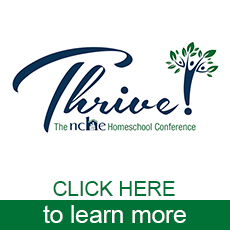by Matthew McDill, August 2021
The NC Senate debated House Bill 324, Ensuring Dignity and Nondiscrimination in Schools on Thursday. While this is an important and interesting story about the teaching of Critical Race Theory concepts in public schools, a little side discussion about homeschooling was born through the debate.
In the midst of the discussion on education, Sen. Gladys Robinson, D-Guilford, stated that Sen. Paul Newton, R-Cabarrus, was not an educator. Newton later responded on Twitter, “In an exchange on the Senate Floor, Senator Robinson accused me and my wife — who successfully homeschooled our children — of not being educators. Is it the @NCSenateDems position that homeschooling parents are not educators?”
Later, the N.C. Senate Democrats tweeted in response, “Surely you cooked your family dinner over the years. We still wouldn’t call you a chef.”

The implication is clear. Teaching doesn’t make you an “educator.” An “educator” is a trained, state-certified professional. This attitude has caused many to question the credibility and effectiveness of home education. How can parents who are not trained educators effectively educate their children? Now that homeschool parents have been teaching their children for several decades, I would like to propose another question.
Are trained, state-certified, professional “educators” more effective at teaching their students than homeschool parents?
Here are a couple of things to consider as we answer this question.
Homeschool students score higher on standardized academic achievement tests than public school students.
Dr. Brian Ray, president of National Home Education Research Institute, did a nationwide study in 2010 of the academic achievement and demographic traits of homeschool students.* In this nationwide study of over 11,000 homeschool students, homeschool students scored, on average, over 30 percentile points higher than public school students on standardized academic achievement tests. For the purposes of this discussion, it is important to note that 89% of the homeschool parents in this study had never been state-certified teachers. In fact, homeschool students who had parents who had never been certified teachers scored slightly better than the students for whom either parent had been a certified teacher.
Research does not demonstrate that teacher preparation and/or state-certification results in student academic achievement.
In a 2017 review of research, Dr. Ray concludes that “research continues to find minimal correlations between teacher preparation and/or teacher certification and students’ academic achievement in public schools (Center for Public Education, 2009; Richardson, 2001). That is, after 116 years of state/public schools teaching the majority of U.S. schoolchildren and about a century of teacher certification systems, scholars are still finding it difficult to argue that formal or state teacher training and certification is necessary to children in institutional schools’ learning well.”**
It seems that we can conclude that “educators” are not more effective at teaching their students than homeschool parents. Maybe we shouldn’t identify “educators” solely by whether or not they are trained, state-certified professionals. An educator is simply someone who effectively educates others. Homeschool parents are wonderful educators! Thanks to all those parent educators out there who are investing in their children’s lives by teaching them and preparing them for life!
* Ray, Brian D. (2010, February 3). Academic achievement and demographic traits of homeschool students: A nationwide study. Academic Leadership Journal, 8(1). https://www.nheri.org/wp-content/uploads/2018/03/Ray-2010-Academic-Achievement-and-Demographic-Traits-of-Homeschool-Students.pdf
** Ray, Brian D. (2017). A review of research on Homeschooling and what might educators learn? Pro-Posições, 28(2). Retrieved June 11, 2020 and November 21, 2018 from http://dx.doi.org/10.1590/1980-6248-2016-0009
References:
– Center for Public Education. (2009, December 17). Does highly qualified mean highly effective? Retrieved February 5, 2016 from http://www.centerforpubliceducation.org/Main-Menu/Staffingstudents/How-good-are-your-teachers-Trying-to-define-teacher-quality/Does-highly-qualified-mean-highly-effective.html
– Richardson, V. (Ed.). (2001). Handbook of research on teaching, fourth edition Washington, DC: American Educational Research Association.




